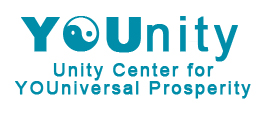
A young couple observed a woman in the grocery store, with a three-year-old girl in her basket. As they passed the cookie section, the child asked for cookies and her mother told her, “No.” The little girl immediately began to whine and fuss, and the mother said quietly, “Now Ellen, we just have half of the aisles left to go through; don’t be upset. It won’t be long.”
They passed the Mother again in the candy aisle, just in time to hear the little girl shout for candy. When she was told she couldn’t have any, she began to cry. The mother very calmly and quietly said, “There, there, Ellen; only two more aisles to go, and then we’ll be checking out.”
The couple again happened to be in the check-out line, right behind the mother and child when the little girl began to clamor for gum and burst into a temper tantrum upon discovering there would be no gum purchased today. The mother patiently said, “Ellen, we’ll be through this check out in five minutes, and then you can go home and have a nice nap.”
The couple tapped the woman on the shoulder to compliment her. “We couldn’t help noticing how patient you were with little Ellen…” The mother smiled and broke in, “Oh, my little girl’s name is Tammy … I’m Ellen.”
Ellen’s self-talk epitomized her commitment to self-mastery. In the New Testament, the Greek word for self-mastery is enkrateia which means “power over oneself.”
In the third chapter of the Gospel of John, there is an exchange between Jesus and Nicodemus, who was a member of the Jewish ruling council. In the first seven verses, Jesus gives Nicodemus the master key to enkrateia, the power over oneself – so perfectly demonstrated by Ellen in the grocery store.
Here’s the upshot of their conversation between the Christ as Jesus and Nick:
Nicodemus comes to Jesus at night and says: “We know you are a very high spiritual being, otherwise, you wouldn’t be able to do what you do. I’m just curious. How do you do it?”
Jesus answered, “You must be born again.”
“What? How can that be. No one can re-enter his mother’s womb,” Nick responds, showing his lack of esoteric knowledge.
Jesus chides him. “How can you not know this truth? You are one of Israel’s chief religious teachers? Read my lips, Nicodemus, you must be born again.” (We’re paraphrasing a bit here!)
What Jesus and Nick were really talking about was the key to Self-mastery. And Jesus wasn’t giving Nick any wiggle room.
Here is a metaphysical interpretation:
The passage says Nicodemus came to Jesus at night: Nicodemus represents that quality within us which is ‘open to higher spiritual truths but is still stuck in traditional religious programming.’ Night, or darkness, means ‘unawareness of our innate divinity.’
The phrase ‘born again’ in Aramaic means ‘to transcend sense attachments’ or ‘move beyond material appetites.’ It means to adopt a consciousness that is not tied to the world of appearances. It means to realize that there is no separation between us and Spirit.
So, Jesus was saying, “If you want to do what I do, if you want to attain self-mastery, you must be willing to stop at one scoop of ice-cream. You must be able to say ‘no’ to that request which will put you under tremendous time pressure. You must erase negativity from your vocabulary and embedded theology from your consciousness.
We must realize there is no separation between us and Spirit. In other words, we must be born again. We must replace the old, frightened, limited, error-prone us with the new, confident, courageous, the sky’s the limit us!
By the way, the sky isn’t the limit anymore – there are footprints on the moon!
The key to self-mastery means giving up the false for the true of us. It means making conscious Christed choices. It means choosing the spiritual over the material. It means walking the spiritual path on practical feet!


One thought on “Born Again, From a Metaphysical Interpretation (John 3:1-7)”
I ‘feel’ different. Scared to follow my feelings though…Came to faith in Jesus 7 years ago, but this is something else. Could I be ‘born again’? I certainly feel awakened.